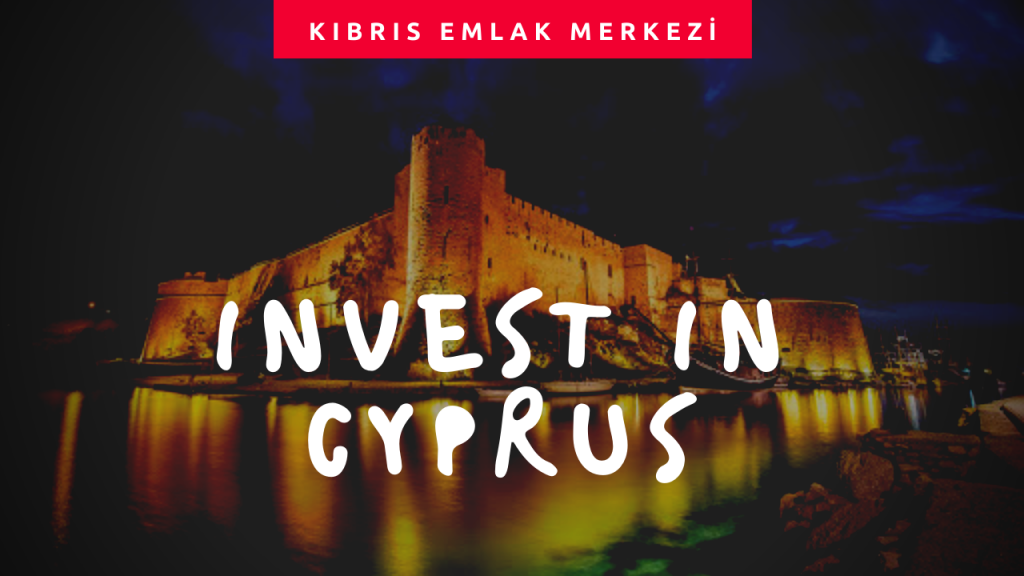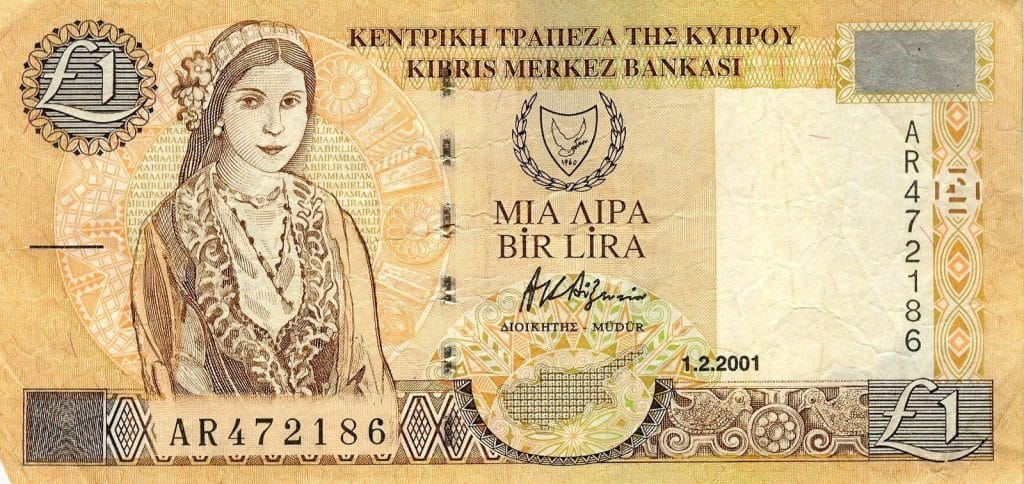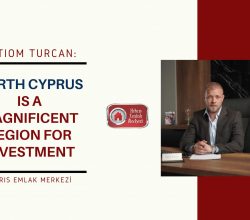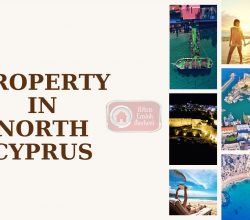
We can easily pride us in saying that the pearl of the Mediterranean is so far the best in Europe in combating the coronavirus pandemic. Due to the successful handling and timely measures taken the Turkish Republic of Northern Cyprus has been one of the safest places globally.
As Kıbrıs Emlak Merkezi / Cyprus Real Estate Center, we will introduce you to an island which is the best kept jewel of the Mediterranean, featuring magnificent weather and a peaceful life style, lovely people and beautiful, untouched nature.
Northern Cyprus is well remembered by holidaymakers with affordable dining, unique tavern experiences, lazy days at beaches stretching over miles, lovely sea temperature allowing to swim even in winter, the smell of Jasmine and orange flowers blossoming, shop keepers chatting away accompanied by a cup of Turkish coffee in front of their shops, beautiful ancients sites as well as luxury cars and villas with pools, luxurious beach clubs, 5 star hotels with all the casinos and a vibrant night life.
If that provoked your appetite to think about settling down in Northern Cyprus, let’s get some details of daily life here.
Starting with the statistics; being a part of an island the population of Northern Cyprus is just as much as a district of Istanbul in numbers.
The president of the Turkish Republic of Northern Cyprus is the newly elected President Ersin Tatar, the Prime Minister is Ersan Saner.
You will find information about minimum wages and civil servant salaries in our following articles. We also have answers for those who ask about the minimum wage in Cyprus and wonder about the Cypriot civil servant salaries. Having a look at the Turkish Cypriot economic situation it would be fair to say that it’s not what it used to be. The cost of living in Turkish Lira, dependent on the foreign exchange, as lots of goods are imported, is on the rise. However, if you are paid in hard currency, that’s good news because due to the exchange rate living costs for expats have become even more affordable. For locals, the bottleneck experienced during the pandemic, produced negative effects on the TRNC economy and the business world.
NOTE: You can easily follow up the developments in the country’s economy with the news of Economy Cyprus, another media organ of our media group.
But despite everything, investments continue. North Cyprus universities have great potential with the number of students reaching the hundred thousand band.
Likewise, Cyprus hotels and Cyprus casinos are among the top choices of holiday and entertainment enthusiasts. Although the quarantine procedure has currently restricted travels for many people, the number of those who miss a flight to Cyprus Ercan Airport is increasing day by day.
Our observation is that inquiries about Cyprus passport and visa requirements at our portals are closely followed by the Cyprus title checks. In other words, many investors who are overwhelmed by the pandemic are looking for information to redirect their living and investments towards real estate in Northern Cyprus.
The price and selling procedure of the real estate is handled with British Pounds, drawing the attention of especially Turkish investors from the mainland. Although criticized from time to time, investors of Cypriot real estate always make profit. Worth to mention: At a rate very well above the world average!! …
If you are ready, let’s go on a pleasant trip to the Turkish Republic of Northern Cyprus.
We will try to our best to share some insiders tips and recommendations about the climate, the beauties and the opportunities of the island, coming from a perspective of people who really live in Cyprus rather than visit on a holiday,
Let’s get started….
Cyprus History
The island of Cyprus is positioned on the map as the third largest island in the Mediterranean.
It has a rich history throughout centuries because of its geopolitical position and has been the hub for many civilizations leaving their mark on the island.
Several major powers occupied Cyprus throughout history due to its strategic location in the Mediterranean, being the center of civilization for decades. Those include the empires of the Assyrians, Egyptians and Persians, from whom the island was seized in 333 BC by Alexander the Great, followed by Egypt, the Roman Empire, Arab caliphates, the French Lusignians dynasty, the Venetians and finally the Ottoman, ruling for over three centuries from 1571 until 1914.
Cyprus was placed under the UK’s administration based on the Cyprus Convention in 1878 and was formally annexed by the UK in 1914, then became part of the British Empire and was colonized from 1925 to 1960. Following its independence in 1960, Cyprus became the 99th member of the United Nations.
The Zurich agreement of 19th February 1959, failed to establish the anticipated cooperation between the Greek and the Turkish Cypriot communities. According to the agreement mechanisms aimed at protecting the Turkish Cypriot interests became a threat to the functionality of the state. Subsequently Greek Cypriots developed the so called Akritas Plan, which aimed to remove all Turkish Cypriot parliamentarians from the House of Representatives to facilitate Greek Cypriot plans of enosis (annexation to Greece).
Intercommunal violence between both communities escalated. Following the implementation of the Akritas Plan, Turkish Cypriots were removed from the central government on the 23rd of December 1963. This meant that all Turkish Cypriot civil servants and ministers, including the Turkish Vice-president Dr. Fazıl Küçük, were excluded from the government. UN peacekeeping forces (UNFICYP) were deployed on the island in 1964. Turkish Cypriots were relocated to enclaves and their mobility was only made possible by UN escorts between cities. Inter communal violence continued intermittently till 1967–68, when a provisional Turkish Cypriot administration was formed.
In July 1974, Archbishop Makarios, President of Cyprus, was overthrown by a coup d’état carried out by Greece conducted by the Greek military junta rule.
This led to the intervention of Turkey on the 20th of July 1974, as a Guarantor power under the Treaty of Guarantees of 1960. The Treaty of Guarantees granted the right of unilateral intervention to Greece, Turkey, and the United Kingdom, should the Island encounter any violence of the constitution and attempt of annexation with another country.
In a two-stage military operation, Turkish troops took control of the northern 38% of the Island. Greek Cypriots fled the south, whilst Turkish Cypriots were relocated to the north of the green line after they were held hostage at camps for some time and tried to flee from execution.
Ever since, the buffer zone has been controlled by the United Nations Peacekeeping Forces, monitoring the rules of ceasefire agreement. Shortly after these incidences, the two Community leaders have been engaged in “peace talks” under the auspices of the UN and in line with the relevant UN Security Council resolutions.
Since 1974, the government of Cyprus has only been effective within the southern part of the green line. The northern part has been outside the jurisdiction of the Republic, and was administered by the Turkish Cypriot Federated State. Following the division of the Island in 1974, the Greek Cypriot administered Republic implemented severe sanctions on the Turkish Cypriot administration in the north.
UN-led peace talks aimed at a bi-communal and a bi-zonal federation on political equality of the two communities continued.

Foundation of the Turkish Republic of Northern Cyprus
On the 15th of November 1983, the Turkish Cypriot Federated State declared its independence as the Turkish Republic of Northern Cyprus (TRNC), founded by President Rauf Denktaş.
In view of the accession of Cyprus to the European Union in May 2004, the UN Secretary General then Kofi Annan prepared a Plan for the Comprehensive Settlement of the Cyprus issue. The plan suggested the reunification of the Island under a federation, and was taken to simultaneous referanda in both communities prior to the EU accession. On the 23rd of April 2003 crossing points on the green line were opened, which enabled movement of Cypriots across the Island. On the 24th of April 2004 the ‘Annan Plan’ was accepted by an overwhelming majority of Turkish Cypriots by 65%, but rejected by 75% of the Greek Cypriots. This led to the accession of Cyprus into the EU on the 1st of May 2004, as a divided country. The EU kept the “Acquis Communautaire” suspended in the north, pending a comprehensive settlement in the future.
NOTE: November 15th is celebrated with enthusiasm every year as the TRNC Republic Day. The Republic of Turkey is well placed in the celebrations with the highest level of representation. Especially the show of Turkish Fighter Aircrafts F-16s fascinates the audience.
Cyprus Pound
Whilst talking about the Cyprus economy, let’s share a short note on the side. Quite frequently we are asked about the Cyprus Pound.
For those who don’t know, the Cyprus Pound was the official currency of the Republic of Cyprus until 1983. The Turkish Lira was adopted after the announcement of the TRNC. Later on the Cypriot Pound was replaced by the Euro as the official currency of the Republic of Cyprus on 1 January 2008 at the irrevocable fixed exchange rate of CYP 0.585274 = €1. However, pound banknotes and coins continued to have legal tender status and were accepted for cash payments until 31 January 2008. They have become obsolete now.

Northern Cyprus Banks
Whilst talking about money, let’s talk about banking.
The banking system in the Turkish Republic of Northern Cyprus has a well-functioning foundation. Banks operate under the roof of the TRNC Central Bank.
Turkish Cypriot owned local banks are well established. In addition, branches of main Turkish banks are open for business for decades.
In other words, you can easily make transactions, use your credit card or money card anywhere, use on-line banking and on top of it there are specialized branches of local banks for expats only, providing their services in English, especially trained to accommodate expats’ needs.
A total of 21 banks, 6 of them being branches of prominent Turkey’s banks, 15 local banks with branches in almost every area, provide service in the TRNC. These 21 banks offer employment opportunities to more than 3 thousand professionals.
The President of the TRNC Central Bank is Rifat Günay,
The President of Northern Cyprus Banks Association is Olgun Önal.
Northern Cyprus Hotels
The Turkish Republic of Northern Cyprus has high standards in hotel management. It hosts many luxurious 5-star hotels.
One of Turkey’s leading hotel chain owners Net Holding, owns the Merit Group chain hotels operating in the TRNC.
Likewise, other Turkish chain hotel owners like the Limak Group, Concorde hotels and Kaya group hotels are all standing out with all-inclusive, ultra-all-inclusive and even flight package included tours. Cyprus hotels promise unlimited entertainment featuring famous musicians, and singers from all over the world. The hotels are stylish; their location is stunning.
Recently, locally run small boutique hotels on the sea side or downtown, as well as Airbnb accommodations have become very popular amongst visitors.
Before you consider making a reservation for Cyprus hotels, it would be wise to check the weather forecast. Sometimes the figures reflected on the thermometer in the summer months can test your patience. If you are not resistant to heat, spring or autumn may be more suitable for your vacation. Planning for a stay during the winter festive season, bank holidays and religious holidays should be done well in advance.
North Cyprus Universities
Increasing the number of universities and investing in higher education has been a governmental policy for years. It is an official strategy as an island state to attract students from overseas and to turn the TRNC into a hub for international students. Based on this strategy the number of Cyprus universities is on the rise.
Universities in North Cyprus provide international education in English in many fields reaching from law to medicine, from gastronomy to sports or to arts recently.
The Near East University, Eastern Mediterranean University and the Girne American University were the first and paved the way of establishing a total of 27 higher education institutions; 25 universities and two academies. An average of 100 thousand students each year receive education at TRNC universities.
The high number of departments with YÖK (Higher Education Institution) equivalence, affordable university fees and the dream of young people to have a holiday-like education life away from the family are among the reasons for choosing Cyprus universities.
Many of the TRNC graduates take on important roles in the international arena, including country administrations.
Cyprus Real Estate Sector
The growing volume of tourism and education is one of the biggest supporting factors of the Cyprus real estate industry.
There is a constant flow of arrivals to the island. Some come for work, others for investment. The needs of inhabitants living on the island are therefore changing continuously. That’s why the real estate sector is a rapidly evolving area in the TRNC.
The sale of houses is done in British Pounds usually. The fluctuation of the exchange rate naturally is not in favour of customers from Turkey, hence the decreasing demand from the Turkish market led to the exploration of the Russian and Scandinavian market, having an income in hard currency. The Cyprus real estate sector is known to be profitable for its investments. The depreciation period is less than 10 years.
Although there isn’t any obvious control over the real estate market, the Ministry of Interior is obliged to supervise real estate agents.
The Cyprus Turkish Realtors Association aims to raise the quality bar with trainings and seminars it provides to members.
Cyprus Construction Companies
Parallel to the demand the real estate sector is facing, Cyprus construction companies are envisaging a rapid growth. In addition to already existing construction companies, other companies usually engaged in tourism and in education are also getting on board with construction.
There has to be a clear distinction about the company to be chosen to entrust the investment for the sake of the investment at this point. That’s why we emphasize to do a thorough research before deciding on a project in the TRNC.
Question their capital, ask about their references!
We can definitely categorize construction companies into two. There are companies that do subcontracting and others which build-and-sell.
Since it is difficult to obtain a contractor’s license, many new companies have entered the market as investors in recent years. They design the project, hire a subcontractor, and arrange the selling through a real estate company.
Cyprus Housing Projects
The bar for quality is raised constantly for TRNC housing projects. Standard villa and apartment models that have been around for years have been replaced by luxury villas with pools and ultra-luxury residences in recent years.
The change in conceptualizing as well as the developing of projects were reflected in the demand of the customers. Many construction companies are now switching to a sales office concept including a show house in order to correctly respond to demands of their customers and finalize the process properly.
The sales of housing projects are generally in Pound Sterling. Some companies agree on a special deal with banks and are able to offer special terms to their investors. Others accept cash payments within the frame of a payment plan.
Depending on the financial situation of the Cypriot construction company, there are also some who will be gifting luxury cars to the housing project.
Reputable real estate companies and agents will be of great help but we would also suggest to run the buying process through a reputable local law firm, specialized in property law to avoid any mishaps.
TRNC Units of Measurement
Houses are measured in square meters, but a common issue for buyers are the unique TRNC measurement units.
In addition to imperial and metric measurements used globally, the TRNC kept on to the Ottoman measurement units. Therefore;
1 acre (donum) of land in Turkey or anywhere else equals to 1000 m2 whereas 1 donum land in Cyprus is the equivalent of 1338 m2. (1 ottoman donum)
Practical calculation of Cyprus land measurements;
1 Donum = 4 Evlek = 14.400 square feet = 1.338 m2
1 Evlek = 3600 square feet = 334.5 m2
1 m2 = 10.76 square feet (ayak kare in Turkish)
Visa regulations at Northern Cyprus
A residence permit is required for expats wishing to reside in North Cyprus.
A short-term residency is given on entering the country. It usually covers 30 or 90 days. This is called a tourist visa.
If you want to stay for longer, you must apply for a Temporary Residence permit. By the way long term residency applications can be done online due to the new automated system.
The requirements are easy to meet: you have to own a property in the TRNC and show a monthly income equal to a minimum wage or prove the annual equivalent of this amount in a bank account.
Or you can rent and show an income equal to at least 3 times monthly minimum wages.
Temporary residence permits are generally renewed every year. However, if you are over 60, you might get a Residence Permit for 2 years.
Passengers with Turkish citizenship arriving in North Cyprus do not require a passport and visa. They can travel with the ID card and travel paper to be filled out at the airport / immigration.
Owning a property does not automatically entitle for a citizenship. However, it does entitle for a residency permit. After 10 years of uninterrupted residence permit, work permit or business permit, you have the right to apply for citizenship.
TRNC Airport
The name of Airport in Northern Cyprus is Ercan Airport.
The airport is recently undergoing construction of renewal to enable a much larger capacity. Ercan Airport will soon have a new terminal building and runways suitable for international flights.
Currently direct flights are only coming in from Turkey to Ercan. Any passenger arriving in Turkey destined to North Cyprus will have to use the transit to get to international departures to continue his flight. Turkish Airlines, Anadolu Jet and Pegasus Airlines have scheduled direct flights from Turkey to the TRNC.
Arriving through Larnaca or Paphos Airport in the South
Larnaca International Airport in South Cyprus is a transit hub for scheduled and charter flights from airports globally. TRNC car hire companies will arrange subsidized taxi pick-ups from Larnaca to take you to the North which will be an approx. 40-minute trip.
Visitors going to Northern Cyprus generally land at Larnaca rather than Paphos being further away from most of the check points and which will result in higher taxi fares. As the Republic of Cyprus is an EU member state, EU visa regulations apply.
Cyprus Coronavirus Process
Northern Cyprus is among the countries least affected by the pandemic that devastated the world using the advantage of being an island country.
The Ministry of Health was very quick in responding to the upcoming wave of cases and provided isolation by closing the borders. Subsequently curfew and lockdown measures have been put in place. Cases and death rates remained minimal compared to the world average. A pandemic hospital has been set up with the contribution of the Turkey, supporting the country’s health infrastructure. As of June 2021 the lockdown has been lifted, the curfew is limited to 5 hours after midnight and entry procedures have been eased. All arrivals to North Cyprus are categorized within one of 6 colors based on the country you have been the past 14 days. These rules apply crossing the border from South to North as well. If you have been in Cyprus the past 14 days’ land border rules apply.






